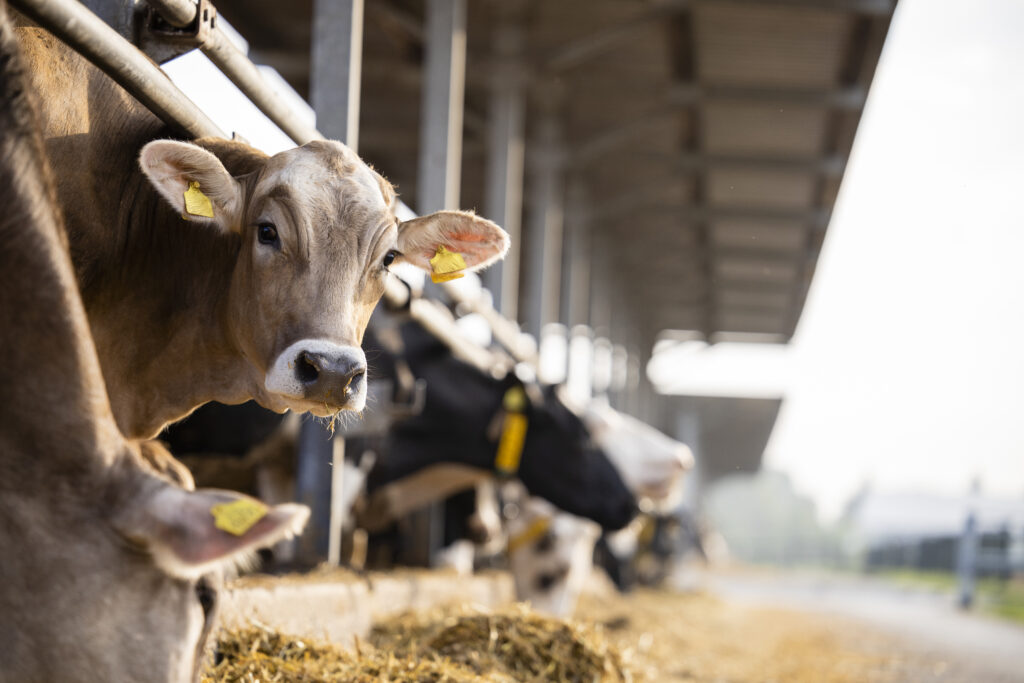May 24, 2024
A Reminder to Not Drink Raw Milk

With the concerns of an outbreak of the Highly Pathogenic Avian influenza viruses (commonly known as bird flu) affecting dairy cows in multiple states in the US, the Cambridge Public Health Department strongly reminds Cambridge residents (both people and their pets) not to drink raw milk.
What is Raw Milk?
Raw milk is milk that has not been pasteurized. Pasteurization is a process of heating up milk in order to kill disease-causing germs. While pasteurized milk is a safe and healthy food, raw milk is not.
One myth about raw milk is that it’s more nutritious than pasteurized milk. However, pasteurization does not reduce milk’s nutritional value. Pasteurized milk offers the same nutritional benefits without the serious risks of raw milk consumption.
Raw Milk – Dangerous For the Whole Family
Raw milk and dairy products made from raw milk, including soft cheese, ice cream, and yogurt, can be contaminated with germs that can cause serious illness, hospitalization, or death. If you or your family member have consumed raw milk and get sick, seek medical attention immediately.
Drinking raw milk is linked to many foodborne illnesses. Symptoms of foodborne illness usually include vomiting, diarrhea, abdominal pain, and flu-like symptoms such as fever, headaches, and body aches. In some cases, more severe outcomes like Guillain-Barré syndrome or hemolytic uremic syndrome can occur. This can potentially lead to paralysis, kidney failure, stroke, or even death.
Do not give your pets raw milk or other raw milk products. Not only can they potentially get sick or even die; pets can also shed diseases in their feces that can spread to people. Kids are especially susceptible.
What about Bird Flu?
Highly Pathogenic Avian Influenza A(H5N1) viruses occur mainly in birds. This is why it’s often called “bird flu.” Currently, there is an outbreak among dairy cows in certain states. High levels of the bird flu viruses have been found in raw milk from infected cows.
While rare, mammals can be infected with bird flu viruses. The CDC notes that there are reports of cats who died after getting sick from drinking raw milk from infected cows. Please be aware that the CDC states that the “highly pathogenic” in Highly Pathogenic Asian Avian Influenza refers to severe impact in birds, not necessarily in humans.
Both the FDA and USDA have indicated that based on the information we currently have, our commercial milk supply is safe, because pasteurization kills bird flu viruses and milk from sick cows is being diverted or destroyed.
Is Pasteurized Milk Safe from Bird Flu?
Both the FDA and USDA have indicated that based on the information we currently have, our commercial milk supply is safe, because pasteurization kills bird flu viruses and milk from sick cows is being diverted or destroyed.
However, even if a cow is not sick with bird flu, it’s still important to only eat and drink pasteurized milk and other dairy products as healthy animals can carry germs that make people and pets sick.
Protect Yourself and Your Loved Ones
The CDC recommends the following to stay healthy when drinking and eating dairy products:
- Choose pasteurized milk and dairy products (ice cream, yogurt, cheese, etc.), making sure to read labels carefully.
- Refrigerate pasteurized milk and other perishable foods at 40°F or colder to slow bacterial growth. Bacteria can multiply rapidly if left at room temperature or in the “danger zone” between 40°F and 140°F.
- Never leave perishable food out for more than two hours (or one hour if exposed to temperatures above 90°F, like in a hot car or at a picnic).
- Throw away expired or spoiled food. When in doubt, throw it out!
